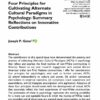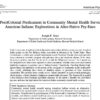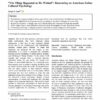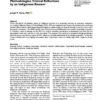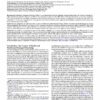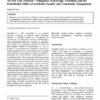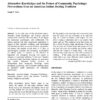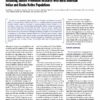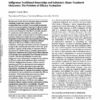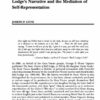Indigenous Knowledge
PDF copies of the articles, chapters, and reports listed below may be downloaded by clicking on my linked name within the citation (* indicates student/trainee co-authors).
Gone, J. P. (2022). Four principles for cultivating Alternate Cultural Paradigms in psychology: Summary reflections on innovative contributions. Journal of Humanistic Psychology, 62(4), 614-623.
Gone, J. P. (2021). The (post)colonial predicament in community mental health services for American Indians: Explorations in alter-Native psy-ence. American Psychologist, 76(9), 1514-1525.
Gone, J. P. (2019). “The thing happened as he wished”: Recovering an American Indian cultural psychology. American Journal of Community Psychology, 64(1-2), 172-184.
Gone, J. P. (2019). Considering Indigenous research methodologies: Critical reflections by an Indigenous knower. Qualitative Inquiry, 25(1), 45-56.
Isaac, G., Finn, S., Joe, J. R., Hoover, E., Gone, J. P., Lefthand-Begay, C., & Hill, S. (2018). Native American perspectives on health and traditional ecological knowledge. Environmental Health Perspectives, 126(12), 1-10.
Gone, J. P. (2017).“It felt like violence”: Indigenous knowledge traditions and the postcolonial ethics of academic inquiry and community engagement. American Journal of Community Psychology, 60(3-4), 353-360.
Gone, J. P. (2016). Alternative knowledges and the future of community psychology: Provocations from an American Indian healing tradition. American Journal of Community Psychology, 58(3-4), 314-321.
Wexler, L., Chandler, M., Gone, J. P., Cwik, M., Kirmayer, L. J., LaFromboise, T., Brockie, T., O’Keefe, V., Walkup, J., & Allen, J. (2015). Advancing suicide prevention research with rural American Indian and Alaska Native populations. American Journal of Public Health, 105(5), 891-899.
Gone, J. P. (2012). Indigenous traditional knowledge and substance abuse treatment outcomes: The problem of efficacy evaluation. American Journal of Drug and Alcohol Abuse, 38(5), 493-497.
Gone, J. P. (2006). “As if reviewing his life”: Bull Lodge’s narrative and the mediation of self-representation. American Indian Culture and Research Journal, 30(1), 67-86.
